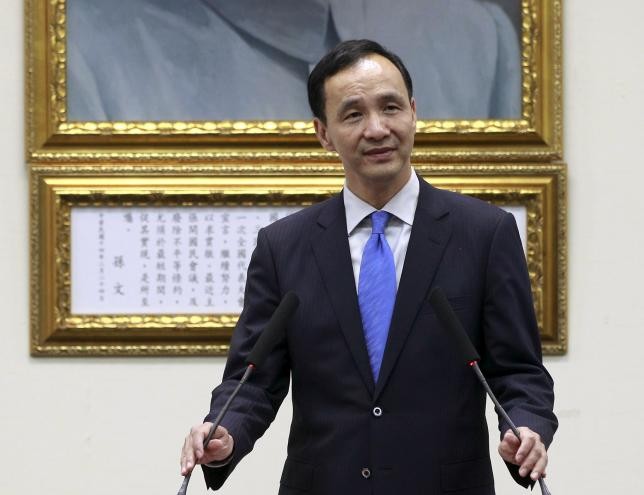Chinese President Xi Jinping is holding talks with Chu Li-luan, chairman of Taiwan’s ruling Kuomintang (KMT), on Monday in Beijing to strengthen the ties between the two nations.
Xi is also the General Secretary of the Communist Party of China (CCCP)'s Central Committee.
The meeting between the two leaders marks the highlight of Chu's first visit to Chinese mainland since taking the role of being the KMT chief.
The KMT leader arrived in Shanghai on May 2, Saturday, along with the Taiwanese delegates to the 10th Cross-Strait Economic, Trade and Culture Forum in Shanghai.
On the forum held on Sunday, Chu said that the two nations should maintain a steady path in quest of developing cross-Straits relations, adding that both must "seek common ground while respecting differences."
KMT Vice Chairman Huang Min-hui and China's State Council's Taiwan Affairs Office chief Zhang Zhijun hosted the annually held meeting.
According to Yok Mu-ming, Taiwan's New Party President, Chu must make a move in creating a new peace accord with China's Xi for the advancement of cross-Straits.
However, Taiwan observers said that instead of coming up with a new plan, the meeting between Xi and Chu is centered on furthering the already existing 1992 agreement.
Xu Shiquan, National Society of Taiwan Studies' vice chairman, remarked that "since the landmark 2005 meeting between Lien Chan [then KMT chairman] and the then CPC leader Hu Jintao, the KMT has been a driving force for the healthy development of cross-Straits relations."
Xu pointed out that with the appointment of the "new KMT chief, both the mainland and Taiwan sides should work to further strengthen mutual trust."
Chu took the role after KMT's landslide victory in Taiwan's regional elections held in Nov. 2014. He replaced Ma Ying-jeou.
Meanwhile, the Democratic Progressive Party has earlier indicated that it will not be covered by the 1992 consensus.
Hu Benliang, an associate research fellow affiliated with Institute of Taiwan Studies of the Chinese Academy of Social Sciences, said that proposals for new policies are unlikely to be raised.
The scholar said that China is more likely to reaffirm the CPC's take about the cross-Straits relations.



























